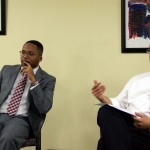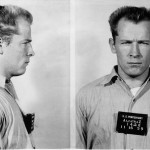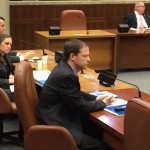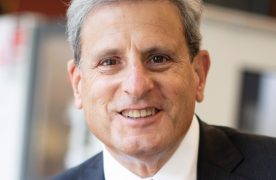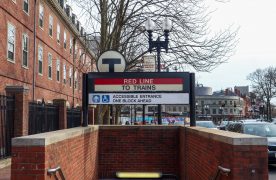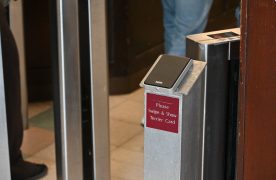The City of Boston and the Metro Boston Homeland Security Region received an $18 million grant from the U.S. Department of Homeland Security to help fund the Boston Mayor Martin Walsh’s Office of Emergency Management, according to a Thursday press release from the mayor’s office.

The OEM, the release stated, is responsible for ensuring the city has plans to prevent and respond to all types of disasters and emergencies.
The grant was awarded through the Urban Area Security Initiative, one of three Homeland Security Grant Programs that allows state administration agencies from major metropolitan regions to apply to the Federal Emergency Management Agency for funding.
On its website, FEMA outlines the parameters of the grant.
The Department of Homeland Security determines the “potential risk of terrorism to people, critical infrastructure and economic security” level to American cities based on a methodology that analyses the likelihood of a city being targeted in a terrorist attack, the likelihood of the attack being successfully carried out and the consequence of the attack to a city’s people and infrastructure, the website states.
The funding must be used in projects that enhance the city’s capacity to train, organize, equip and prepare for terrorism.
In 2015, a total of $587,000,000 of funds has been distributed to UASI cities, of which 28 have been designated, down from 39 in 2014, according to FEMA’s website.
“I am proud of our City’s strong relationship with the Department of Homeland Security,” Walsh said in the release. “The City of Boston is a strong community, and this funding is critical to ensuring long-term resiliency.”
The MBHSR has been the beneficiary of UASI grant money since 2003, funding emergency response programs in Brookline, Cambridge, Chelsea, Everett, Quincy, Revere, Somerville and Winthrop, said Matthew Benedetti, a public information officer from the OEM.
“What the funding will do is it will allow OEM to continue to train, equip and prepare first responders to ensure that all the members of the MBHSR are ready for any potential contingency,” Benedetti said.
Benedetti said that in 2015, Boston was determined to be at the eighth highest risk area in the nation. The funding will be implemented later in the fiscal year.
The grant will be distributed across seven key areas of investment, including but not limited to enhancing city evacuation routes, funding intelligence analysis programs and ensuring area hospitals are prepared to respond to a large-scale catastrophic event, Andrew Murphy, a regional planner for the OEM, wrote in an email.
Benedetti said the funding is vital to maintaining the city’s security.
“In these uncertain times, the USAI grant is important for our office. We recognize that emergencies can happen at any time, and this funding allows us to enhance the capabilities of our first responders,” he said. “It allows us to invest in equipment and training for a series of contingency-based scenarios that reflect the current threat to public safety.”
Several residents said they had mixed feelings about the effectiveness of the funding.
Ryan Buckley, 26, of Allston, said he supports the program because it could help prevent future acts of terrorism in Boston.
“Boston is in the unique position because it’s seen terrorism so recently,” he said. “I think that because of the Marathon bombings, we’re especially aware that more people could do something similar, so I feel like we should have the money and the plans in place to make sure more people don’t die like they did two years ago.”
Sean Smith, a sophomore in Boston University’s College of Arts and Sciences, said the USAI grant will do little to prevent attacks by radicalized individuals.
“Hopefully in the future, if we’re less involved in the Middle East and other conflict areas, there won’t be as much interest in hurting U.S. citizens,” he said. “I don’t think there’s a whole lot you can do to prevent domestic terrorism, because it’s a question of ideology. So at the end of the day, I don’t think it’s money well spent.”
Adam Willis, 40, of Brighton, said money is not effective in preventing terrorist activity.
“Are you ever going to have enough money to stop terrorism in Boston? I don’t think that’s possible,” Willis said. “The bombers didn’t have a nuclear weapon or anything. They had a backpack. You can’t stop terrorism if you don’t know when it’s going to happen.”


